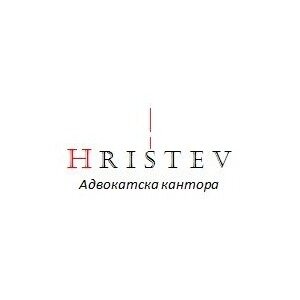Best Conveyancing Lawyers in Plovdiv
Share your needs with us, get contacted by law firms.
Free. Takes 2 min.
Free Guide to Hiring a Real Estate Lawyer
List of the best lawyers in Plovdiv, Bulgaria
About Conveyancing Law in Plovdiv, Bulgaria
Conveyancing in Plovdiv, Bulgaria refers to the legal process of transferring the ownership of real estate property from one party to another. This process involves several steps, including preparing legal documents, performing due diligence, handling contract negotiations, registration of the transaction, and making sure all legal obligations, such as paying taxes and fees, are fulfilled. Conveyancing is governed by Bulgarian property law, and it ensures that both the buyer and seller are protected throughout the transaction. In Plovdiv, as in the rest of Bulgaria, this process requires careful attention to detail to prevent disputes and ensure that all legal requirements are satisfied.
Why You May Need a Lawyer
There are several situations in which seeking legal help for conveyancing in Plovdiv is necessary. Some common scenarios include:
- Buying or selling residential or commercial property
- Transferring property ownership between family members
- Dealing with inheritance of real estate
- Resolving property disputes or boundary issues
- Investigating the legal status or history of a property
- Securing a mortgage or other real estate financing
- Making sure all taxes and associated fees are properly paid
- Navigating regulations related to foreign ownership
- Ensuring compliance with zoning and urban planning laws
- Addressing issues of co-ownership or shared property rights
An experienced lawyer can protect your interests by investigating property titles, drafting and reviewing contracts, ensuring due diligence, and facilitating the legal registration process.
Local Laws Overview
Conveyancing in Plovdiv is mainly regulated by the Bulgarian Notary and Registration Act, the Law of Obligations and Contracts, and the Real Estate Property Act. Key points include:
- All property transactions must be concluded in written form before a notary public.
- The transfer of ownership is only effective upon entry in the Property Registry.
- It is crucial to verify legal ownership, outstanding encumbrances, mortgages, or claims on the property.
- Foreign nationals can generally purchase property in Bulgaria, but land ownership may be subject to certain restrictions depending on the type of property and the buyer’s residency status.
- There are obligatory taxes and fees, such as transfer tax, notary fees, and registration fees, which must be paid during the transaction.
- If the property is co-owned, all co-owners must consent to the sale or transfer.
- The property must comply with applicable urban planning and zoning legislation.
Understanding these laws is essential to prevent costly mistakes or void transactions.
Frequently Asked Questions
What is the typical process for buying property in Plovdiv?
The process involves preliminary agreement, due diligence checks, the signing of the final contract before a notary public, payment of the purchase price, payment of taxes and fees, and the registration of the transaction in the Property Registry.
Is it mandatory to use a lawyer for conveyancing in Plovdiv?
No, it is not mandatory, but it is highly advisable. A lawyer provides legal certainty, prepares documentation, and helps protect your interests.
Can a foreigner buy property in Plovdiv?
Yes, foreigners can buy property in Plovdiv. However, there may be restrictions regarding the buying of land for non-EU citizens. Always confirm with a legal advisor.
How is property ownership officially transferred?
Ownership is transferred upon signing the notarial deed and its registration at the local Property Registry.
What taxes and fees must I pay when buying property?
You must pay transfer tax, notary fee, and registration fee. Their amounts depend on the value and location of the property.
How long does the conveyancing process take?
It can vary, but typically takes between two and six weeks, depending on the complexity of the transaction and the readiness of documentation.
What is due diligence in property transactions?
Due diligence is the process of investigating the property’s ownership status, checking for debts, mortgages, outstanding taxes, or other encumbrances before purchase.
What documents do I need for property transfer?
You need the title deed, property plan, tax evaluation, certificate from the Cadastre, proof of paid taxes, personal IDs, and additional documents as required by the notary.
What if there is an outstanding mortgage on the property?
The mortgage must usually be settled before or during the transfer. Your lawyer will help clarify the procedure and legal implications.
How can a lawyer assist me in the conveyancing process?
A lawyer will conduct due diligence, review and prepare contracts, clarify tax obligations, communicate with notaries and registries, and make sure the transfer is legally sound.
Additional Resources
If you require more information, you may consult the following resources and authorities:
- Plovdiv District Court - Property Registry Department
- Municipality of Plovdiv - Local Taxes and Fees Office
- Bulgarian Notaries Chamber
- Ministry of Justice of the Republic of Bulgaria
- Bulgarian Chamber of Private Bailiffs (for enforcement of judgments)
- Lawyers Association in Plovdiv
These organizations can provide guidance, official documentation, and legal clarification.
Next Steps
If you need legal assistance with conveyancing in Plovdiv, start by identifying reputable local lawyers or law firms experienced in real estate transactions. Collect all relevant documents related to the property in question, including title deeds and tax information. Schedule an initial consultation to discuss your specific goals and concerns. During the consultation, ask about the lawyer’s experience, approach, estimated timelines, and fee structure. Keep in mind that professional legal assistance will help you avoid risks, ensure compliance with Bulgarian law, and facilitate a smooth property transfer process.
Lawzana helps you find the best lawyers and law firms in Plovdiv through a curated and pre-screened list of qualified legal professionals. Our platform offers rankings and detailed profiles of attorneys and law firms, allowing you to compare based on practice areas, including Conveyancing, experience, and client feedback.
Each profile includes a description of the firm's areas of practice, client reviews, team members and partners, year of establishment, spoken languages, office locations, contact information, social media presence, and any published articles or resources. Most firms on our platform speak English and are experienced in both local and international legal matters.
Get a quote from top-rated law firms in Plovdiv, Bulgaria — quickly, securely, and without unnecessary hassle.
Disclaimer:
The information provided on this page is for general informational purposes only and does not constitute legal advice. While we strive to ensure the accuracy and relevance of the content, legal information may change over time, and interpretations of the law can vary. You should always consult with a qualified legal professional for advice specific to your situation.
We disclaim all liability for actions taken or not taken based on the content of this page. If you believe any information is incorrect or outdated, please contact us, and we will review and update it where appropriate.
















